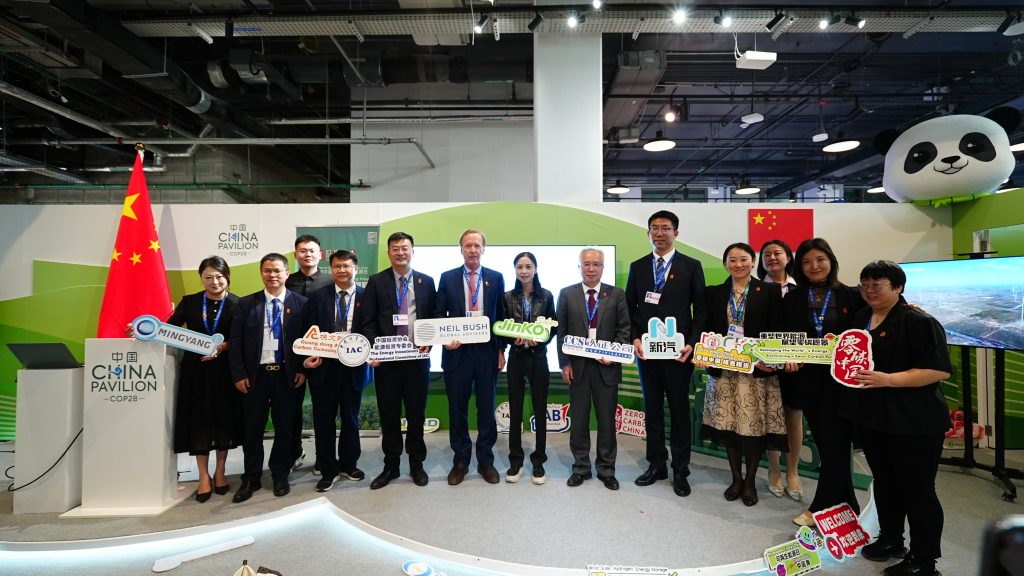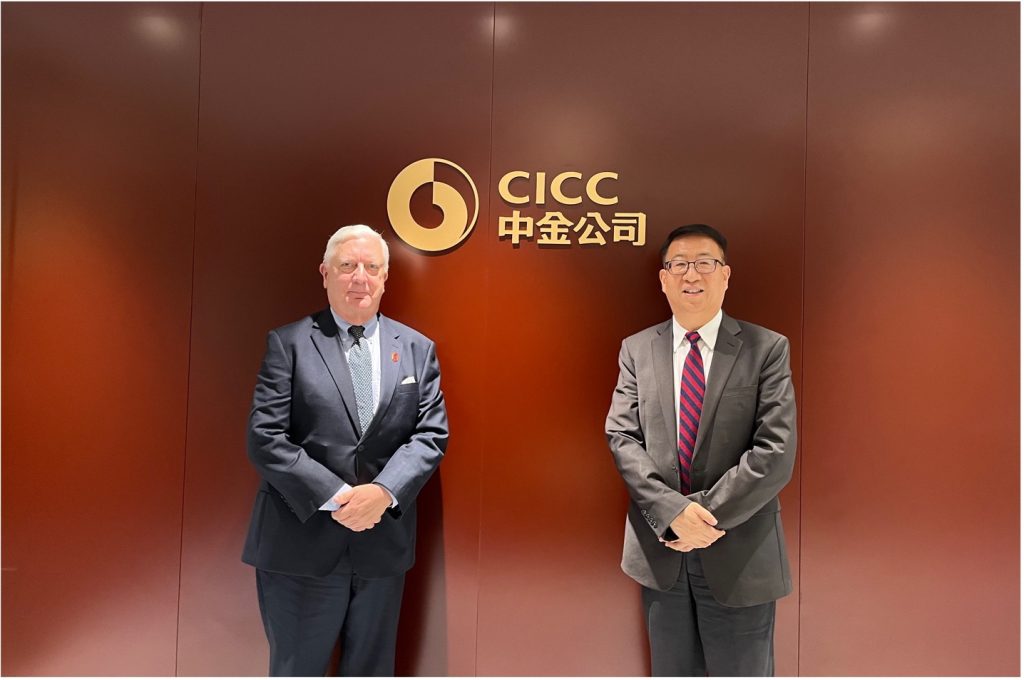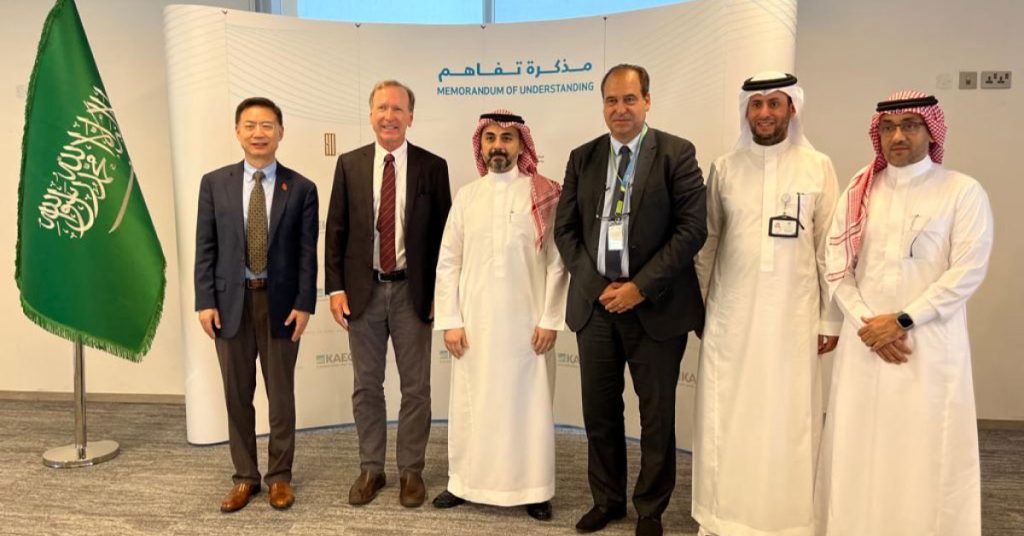On the afternoon of December 9th, local time, during the 28th Conference of the Parties (COP28) to the United Nations Framework Convention on Climate Change, the ‘Global Renewable Energy Prospects and Zero-Carbon China’ Special Session was successfully held at the Dubai Expo City as part of the China Pavilion · Renewable Energy Day Event, organized by the Ministry of Ecology and Environment of China. This side event, hosted by the Energy Investment Professional Committee (EIPC) of the Investment Association of China (IAC), garnered widespread attention and active participation from numerous domestic and international energy companies, research institutes, and investment and financing institutions. Themed “Reshaping the World’s Energy, Envisioning a Zero-Carbon Future,” the conference delved into critical topics such as energy transition, renewable energy industry, international cooperation, energy investment, green finance, and zero-carbon development. It called upon the international community to shift from commitments to action, jointly promoting the innovation and sustainable development of renewable energy. The conference fully showcased China’s outstanding contributions to global renewable energy development as a responsible developing country, offering the world an opportunity to gain a deeper understanding of China’s renewable energy development.
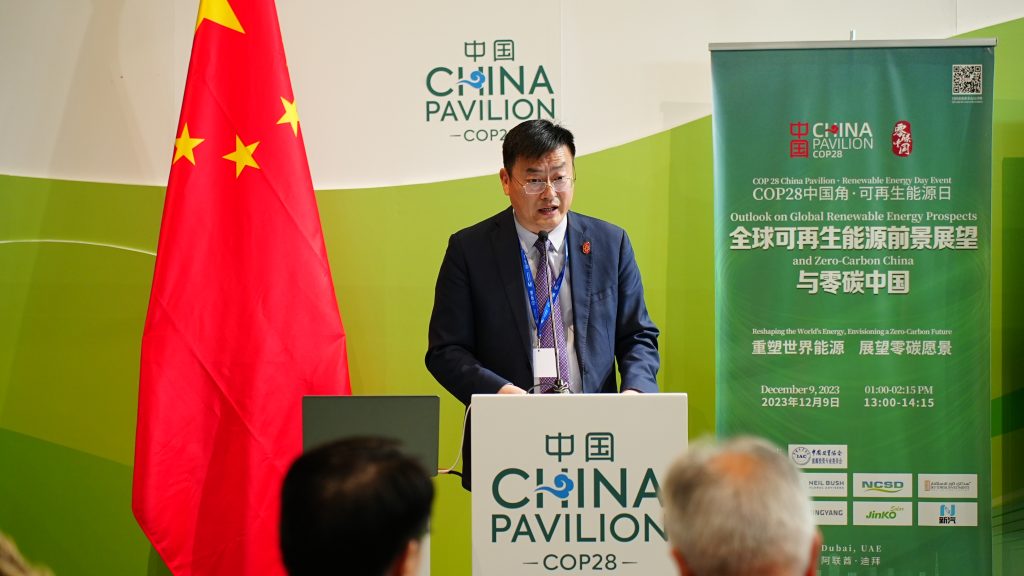
The conference was presided over by Zhang Jie, Vice President of the Energy Investment Professional Committee (EIPC) of IAC. In his address, he noted that vigorously developing renewable energy is an important measure for the global response to climate change and for driving the energy-economic transition. This approach has formed a broad consensus worldwide. However, issues such as uneven distribution of resources, regional development imbalances, the need for technological and equipment advancement, and the economic viability of renewable energy still persist. As the largest producer and consumer of renewable energy, China looks forward to attracting more attention and participation in the global development of renewable energy through this forward-thinking and pragmatic event. We aim to inject new vitality into the march towards a zero-carbon future and offer more insights for the future development of global renewable energy.
Mr. Li Gao, Member of the Environmental and Resources Protection Committee of the National People’s Congress, Vice Chairman of the COP28 Presidency, and Director of the Climate Investment and Finance Association (CIFA) of the Chinese Society of Environmental Sciences (CSES), stated in his address that the development of renewable energy is a fundamental strategy to respond to climate change. The establishment of a ‘Renewable Energy Day’ event at COP28 for the first time reflects China’s high regard for renewable energy. Since the implementation of the Renewable Energy Law of the People’s Republic of China in January 2006, China’s renewable energy has achieved leapfrog growth in just over a decade, making historic achievements and significantly contributing to the global response to climate change. Further perfecting the legal and policy framework for renewable energy development is of great importance for propelling China’s renewable energy to new heights. The amendment of the Renewable Energy Law has been included in the legislative plan of the 14th National People’s Congress Standing Committee, led by the NPC Environmental and Resources Protection Committee, and the work is already fully underway. The goal of tripling the global installation capacity of renewable energy by 2030 will inject strong power into the development of renewable energy globally and in China. Mr. Li Gao also expressed that the development of renewable energy needs a favorable international environment. The ‘decoupling and breakage of supply and industrial chains’ policies and the so-called ‘de-risking’ strategies pursued by some developed countries will undermine global cooperation, increase the cost of renewable energy development, impair the ability of developing countries to utilize renewable energy, and ultimately harm the collective effort to combat global climate change. He hopes that developed countries will stand on the right side of history, return to the track of cooperative climate action, and join developing countries in building a clean and beautiful world.
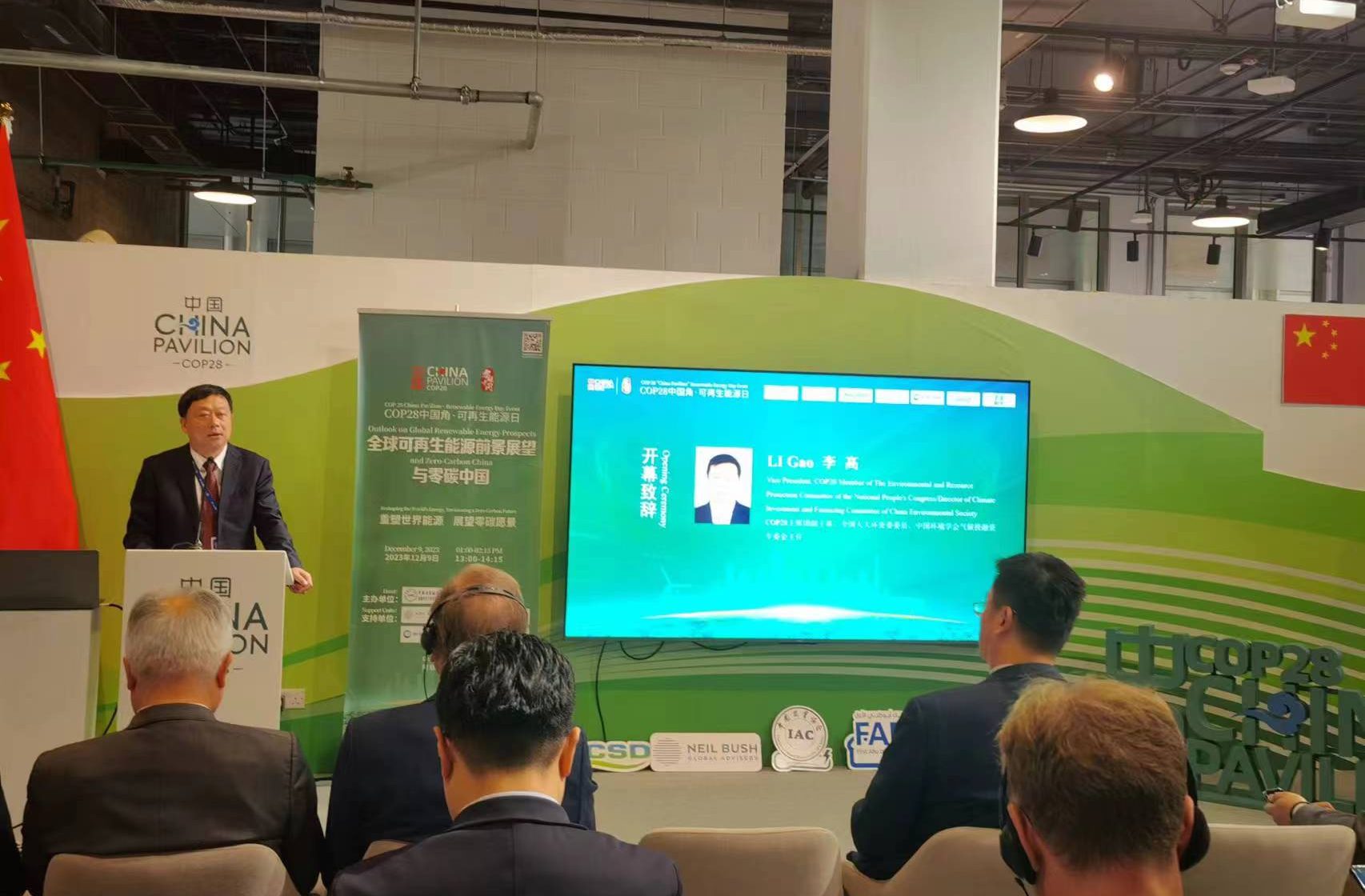
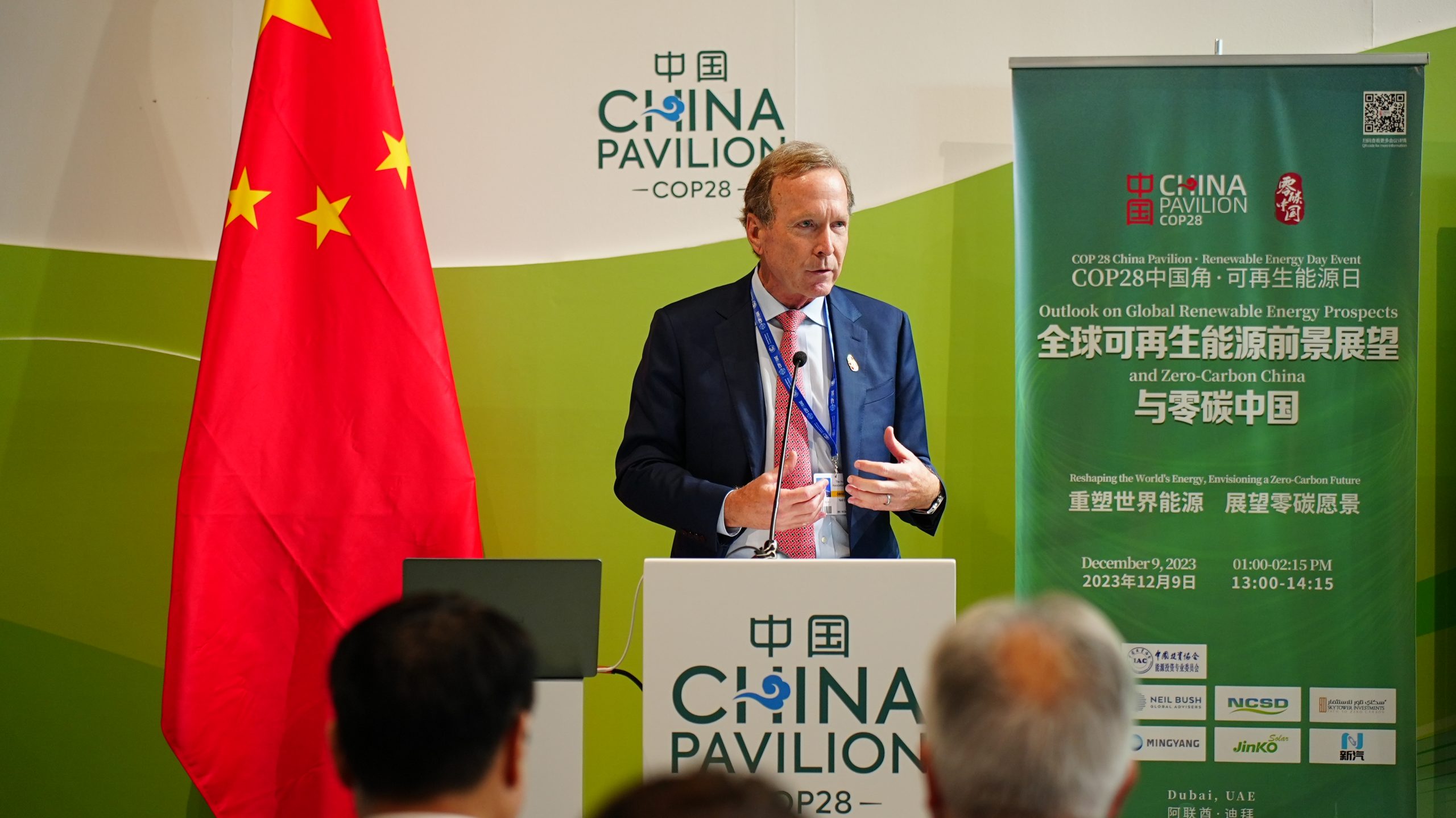
Mr. Neil Bush, Chairman of the George H.W. Bush Foundation for U.S.-China Relations, pointed out that China and the United States, as the two largest economies in the world, play a crucial role in addressing the climate change crisis. It is imperative for both China and the United States to adopt a more systematic approach in the realm of climate change to effectively tackle environmental crises. Global cooperation is extremely beneficial and serves as a formidable force in responding to climate change and other existential human challenges. We need to encourage leaders in politics, business, academia, and think tanks to confront these crises and to pursue this objective with a calm and courageous mindset.
Leading with ‘Zero Carbon China’ Standards, Facilitating high-quality green and low-carbon development
Being led by standards is a key component in the high-quality development of the economy. In recent years, the Investment Association of China (IAC) has vigorously promoted the construction of the ‘Zero Carbon China’ standard system. It has expedited the deep integration of standardization with various field scenarios, actively exploring evaluation standards and solutions for zero-carbon scenarios such as zero-carbon industrial parks, factories, cities, and villages. This effort is a significant contribution to the high-quality development of renewable energy.
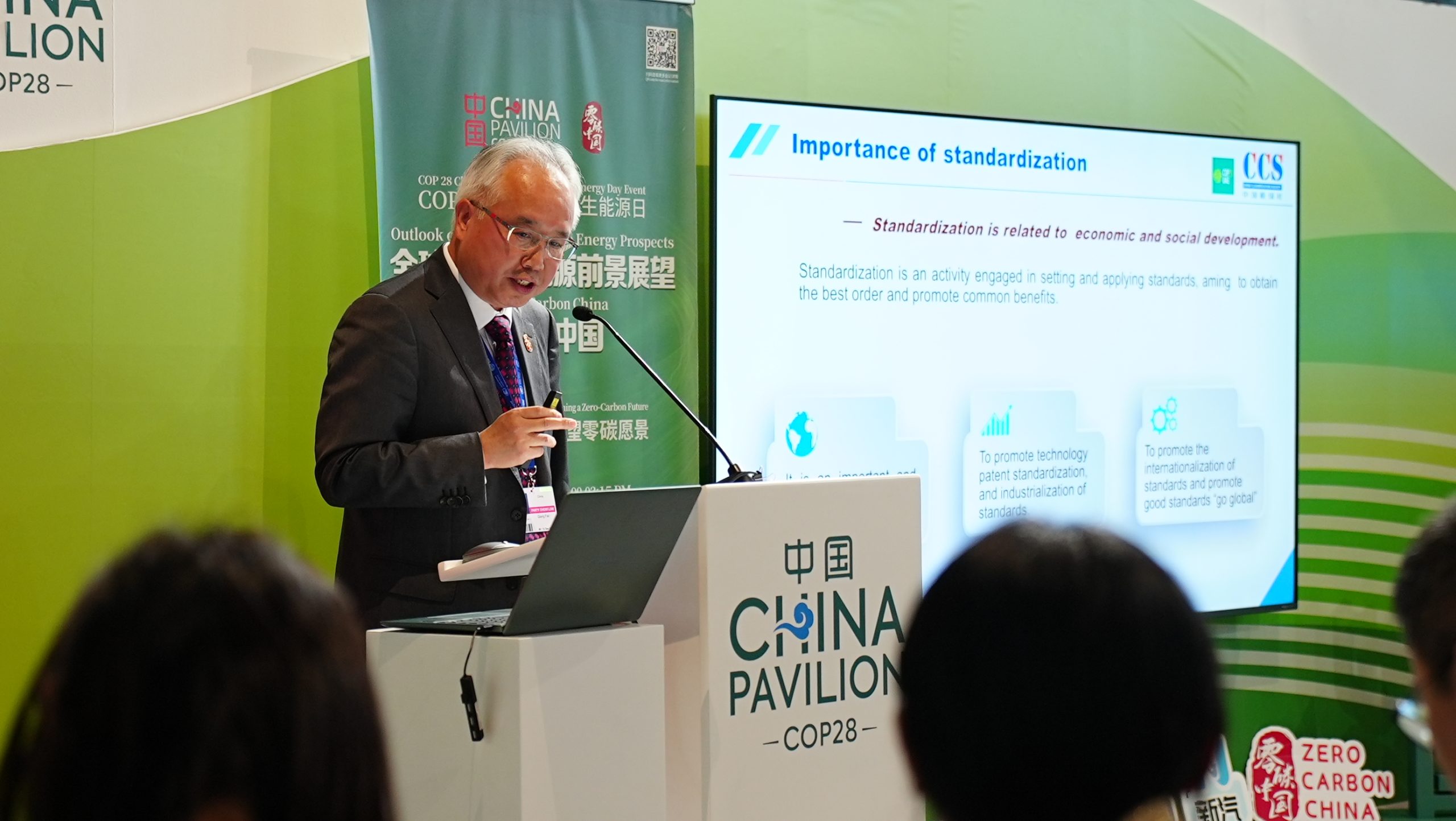
The China Classification Society is a participating unit in the drafting of the ‘Zero Carbon China’ standards. Mr. Fan Qiang, Vice President of the China Classification Society, stated that standards are the universal language of the world and play an important role in promoting global interconnectivity. Addressing climate change through standards and guiding various social entities to advance emission reduction and decarbonization efforts in an orderly and prudent manner with a systematic standard system has already yielded positive results. The China Classification Society is committed to fostering green and low-carbon technological innovation and application through standardization. Upholding the principles of independence and impartiality, the China Classification Society and its certification company endeavor to convey trust, serve the society’s green and low-carbon development, and contribute to the global response to climate change.
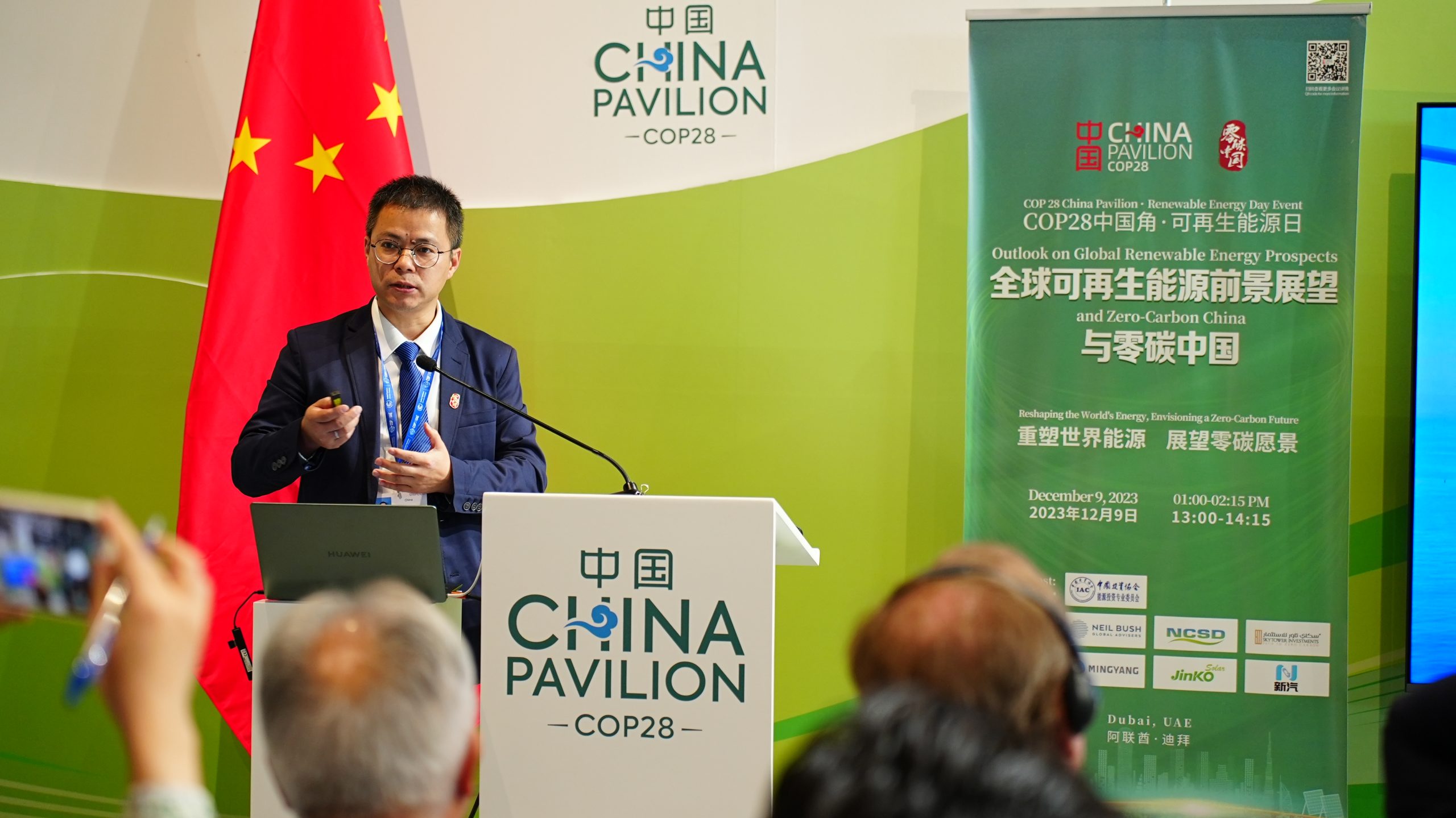
Developing renewable energy is a crucial measure for achieving the zero-carbon vision
Chinese enterprises are the main force in China’s implementation of the ‘2030 Carbon Peak and 2060 Carbon Neutrality’ goal. They conscientiously shoulder the social responsibility of low-carbon development and environmental protection. Through tangible actions, they practice the strategy of prioritizing ecological conservation and green development. This contributes significantly to the achievement of carbon peak and carbon neutrality goal, thereby aiding the global zero-carbon development effort.
Mr. Zhang Qiying, President of Mingyang Smart Energy Group Limited, stated that the key to achieving global zero-carbon development lies in reducing the green premium, with technological innovation being the primary driver towards this goal. China possesses the world’s largest unified market, complemented by a comprehensive industrial and supply chain, providing a solid foundation for technological innovation and iteration. Against this backdrop, Mingyang will actively integrate global resources and continuously make new breakthroughs in green innovation, thereby allowing Chinese innovations to benefit the world.
Ms. Qian Jing, Vice President of Jinko Solar, introduced that Jinko Solar has always been committed to making meaningful contributions to global sustainable energy practices. The company advocates for innovative solutions and actively promotes energy transition, with a focus on the clean, inclusive, and equitable development of emerging photovoltaic energy. Leading the future of green and sustainable development is the core mission of Jinko Solar. The company profoundly understands the urgency of global energy transformation and has thus formulated a development strategy in line with international climate goals. As a representative enterprise of China’s photovoltaic industry, Jinko Solar will actively contribute to the achievement of global renewable energy development goals.
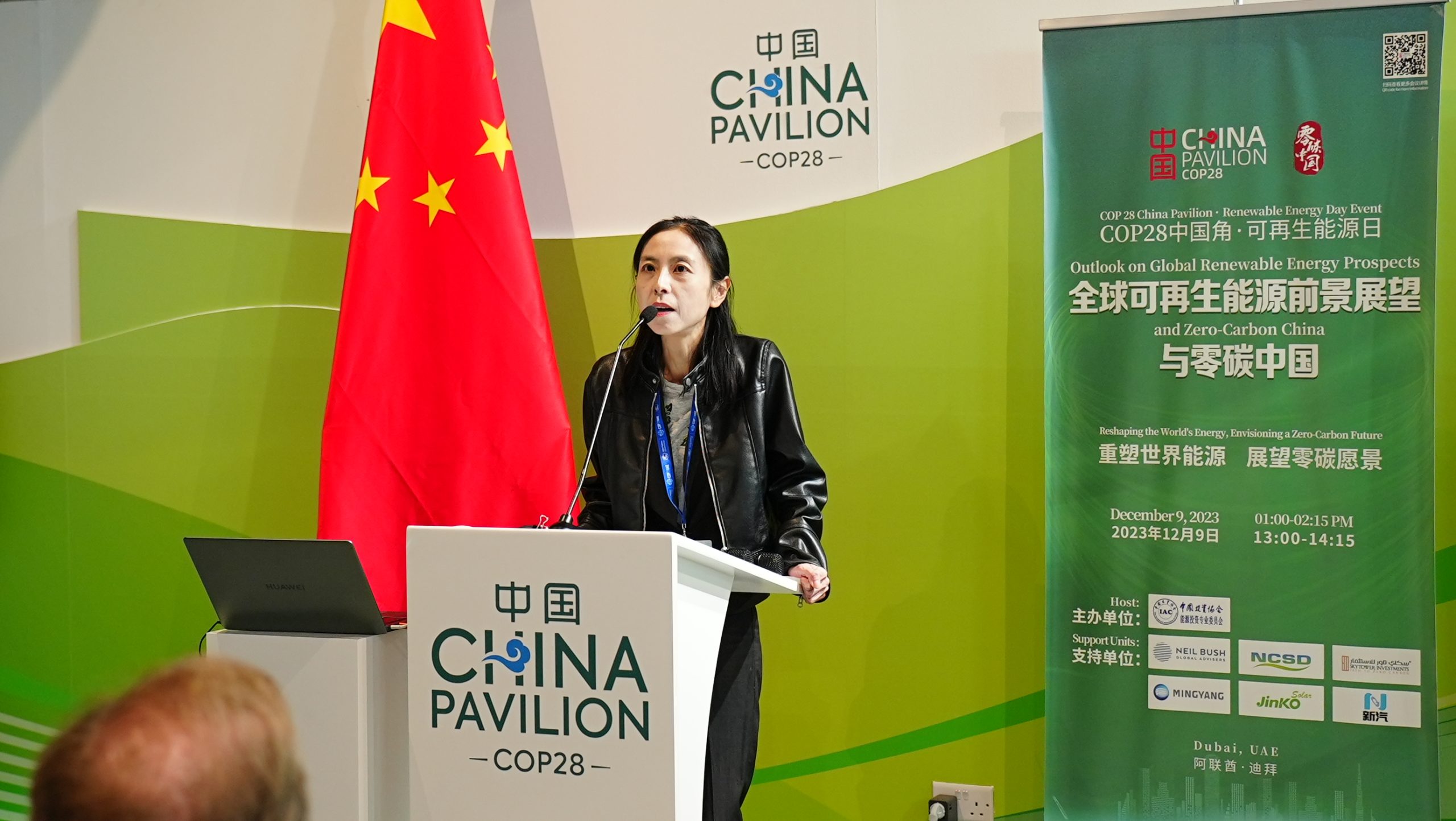
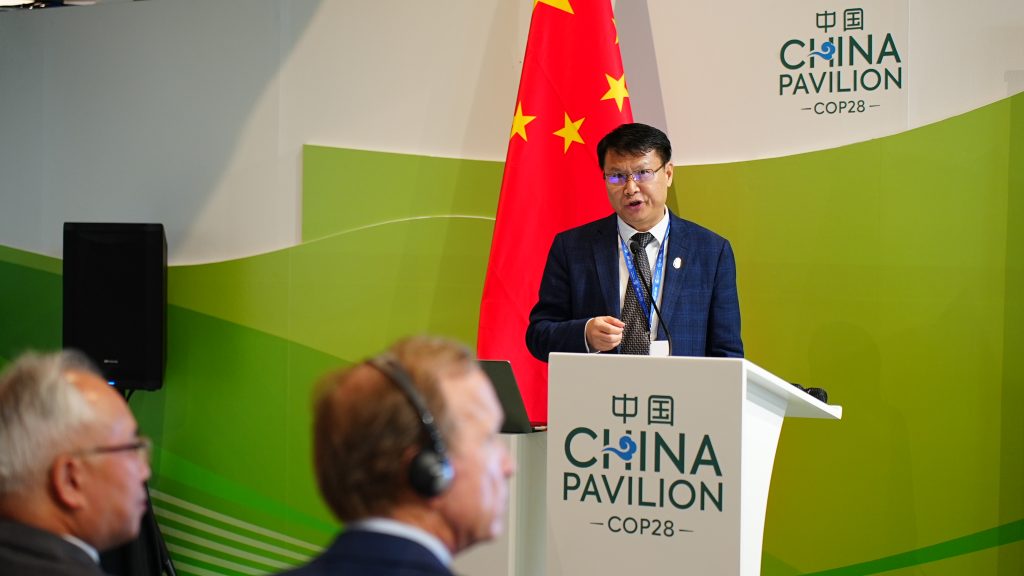
Mr. Zhou Yongzhang, Chief Scientist at the Center for Earth Environment and Resources, Sun Yat-sen University, and Chairman of Guangdong Avi Low-Carbon Technology Co., Ltd., expressed that under the backdrop of the ‘dual carbon’ goal, the digital transformation of energy effectively promotes green and low-carbon transition, the intelligent renovation of energy systems generates green investment opportunities, and the need for the ongoing deep integration of energy and digital transformations is evident. Chinese enterprises are gradually embracing the concept of carbon footprint and the whole lifecycle management of carbon emissions, while implementing carbon labeling work using relevant standards. Some enterprises and products have already had successful practices in this regard, significantly advancing the realization of Zero-Carbon China.
Mr. Zhang Qiang, Director of the Ecological Strategy Center at Xinqi Co., Ltd., stated that in response to postal and express delivery end-point scenarios, Xinqi independently developed a green electric fulfillment tool. Innovatively, it is equipped with an onboard distributed photovoltaic system, driving the construction of green digital infrastructure in the postal and express delivery industry and the foundation of smart cities. The carbon asset data management module developed by Xinqi provides data support for the establishment of carbon asset standards, exploring new possibilities for the integration of technology, business, and markets across the courier industry and other sectors. This innovation has created significant economic and social benefits, contributing to the development of new business models and the growth of smart cities.
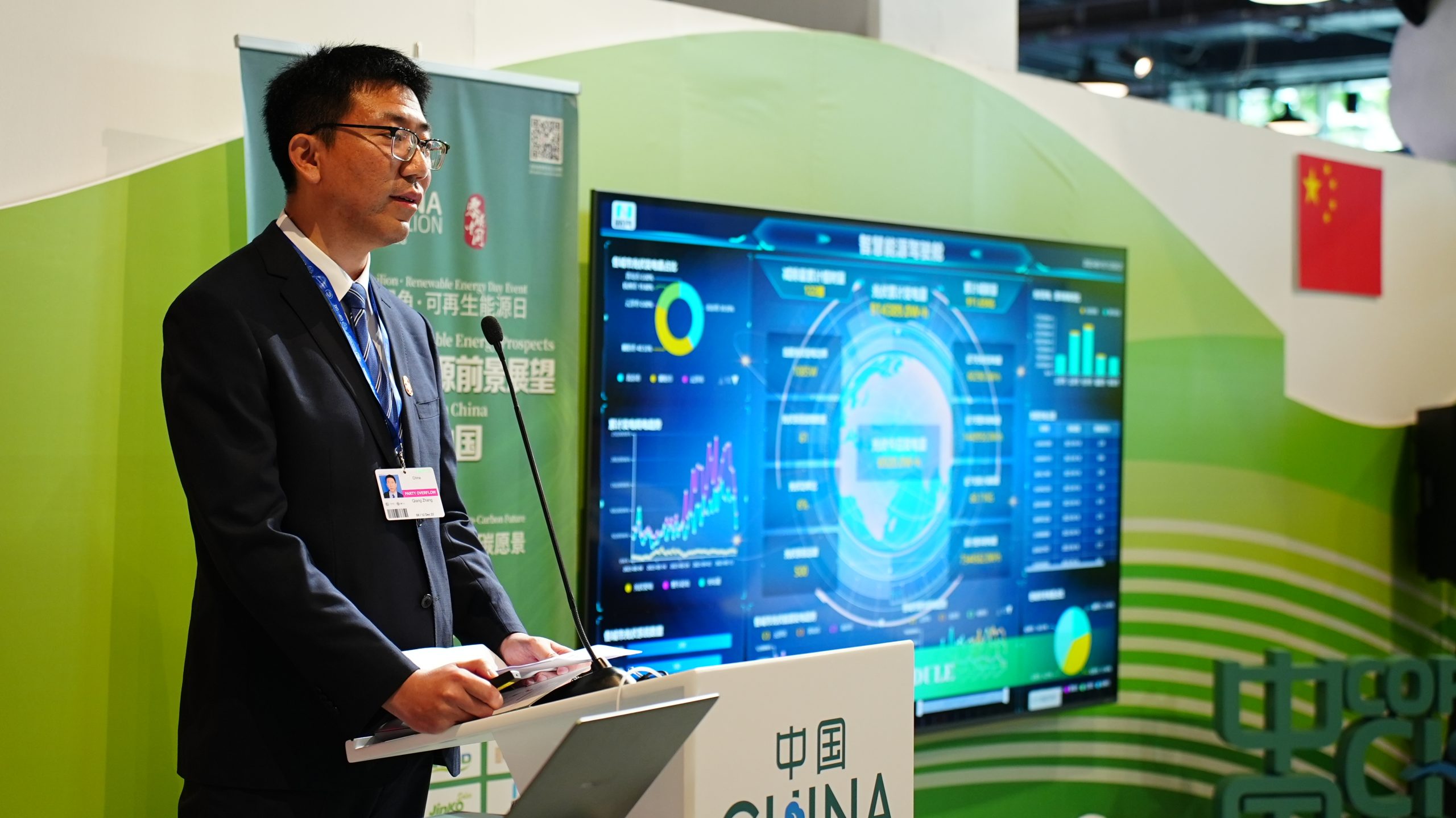
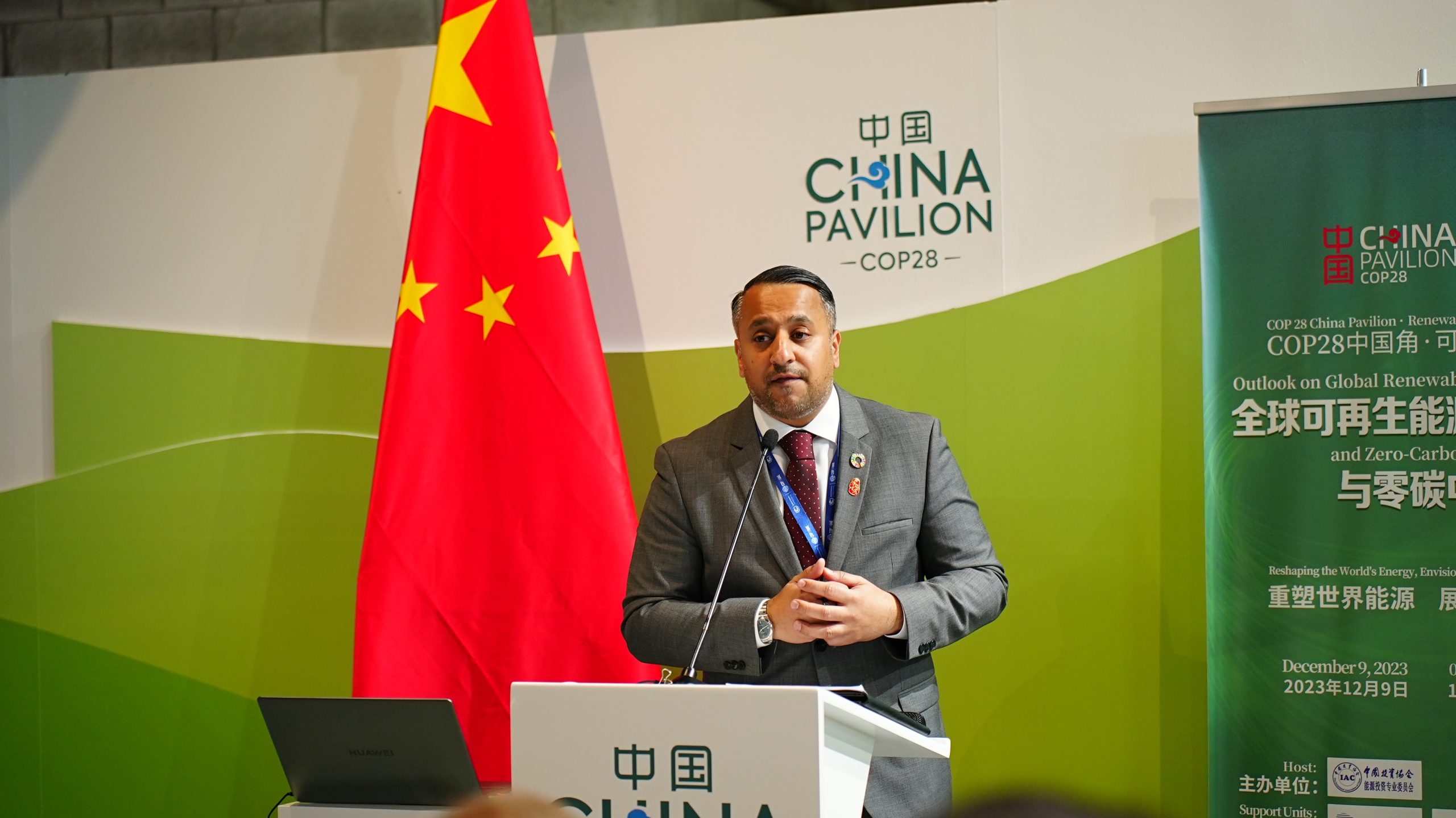
Green finance has become the primary task in addressing the macroeconomic and fiscal impacts of climate change
Mr. Shargiil Bashir, EVP & Chief Sustainability Officer at First Abu Dhabi Bank (FAB), stated that FAB is a strategic partner of the COP28 conference. The bank aligns with the UAE government’s vision to achieve net-zero by 2050, particularly in promoting sustainable financing and supporting climate change initiatives. FAB places great emphasis on the development of the renewable energy industry. He mentioned that efforts to achieve carbon neutrality and net-zero emissions require a series of fiscal, monetary, and regulatory policy actions at both national and collective levels. To achieve carbon neutrality, no region should be excluded from financing. Mobilizing sustainable and green finance has indeed become the primary task in addressing the macroeconomic and fiscal impacts of climate change. In the future, FAB will accelerate sustainable finance to strengthen the UAE’s role as a prominent center for green finance, support clients and partners in transitioning to zero carbon emissions, and enhance awareness among Small and Medium-sized Enterprises (SME) sectors about Environmental, Social, and Governance (ESG) practices. The bank is committed to fostering innovation in production processes and knowledge sharing to develop carbon markets, supporting ecosystem restoration and biodiversity protection. First Abu Dhabi Bank is dedicated to playing a positive role as a financial institution, promoting international industrial cooperation and contributing to sustainable development.
This conference has outlined a splendid vision of a zero-carbon future, a vision that is not only a commitment of China but also a global collaborative goal, marking a new chapter in the development of global renewable energy. By contributing China’s experience to the world and enhancing global understanding of China, we ultimately aim to achieve shared progress in global renewable energy.

